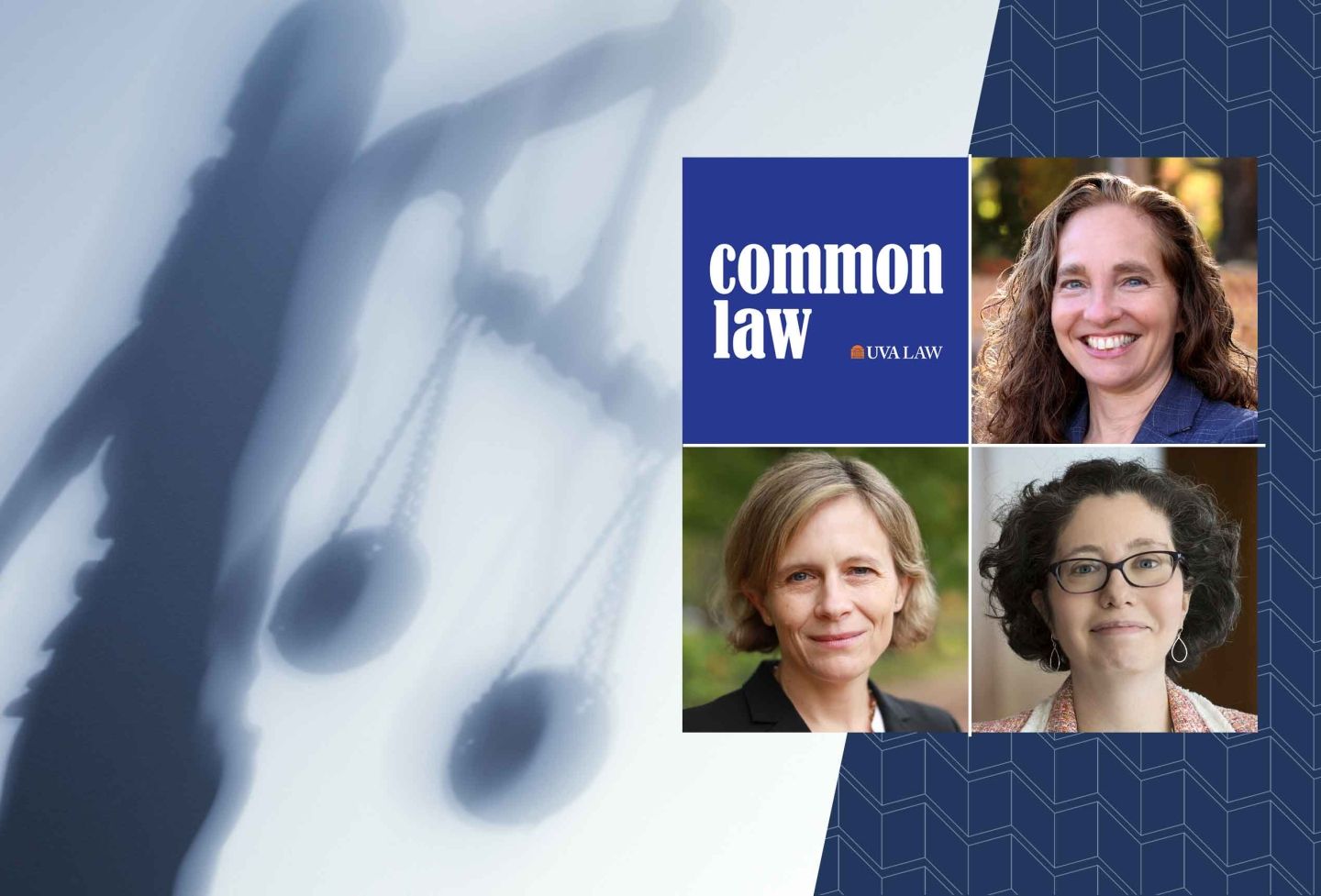John Gleeson, a 1980 graduate of the University of Virginia School of Law who stepped down as a federal district judge last month, delivered a talk Wednesday at the Law School in which he called upon the U.S. Congress and the U.S. Sentencing Commission to reform a drug-sentencing approach that, he says, has unjustly and excessively incarcerated much of the population.
Gleeson, a Clinton appointee to the U.S. District Court for the Eastern District of New York who served for 21 years, made his remarks as this year's recipient of the Thomas Jefferson Foundation Medal in Law.
"Sometimes unfairness and injustice are right under our noses," Gleeson said.
The talk was among several events on Grounds this week honoring medalists for 2016. UVA and the Thomas Jefferson Foundation, which owns and operates Monticello, jointly sponsor the medals, which are the highest outside honor bestowed by the University.
Harsh mandatory-minimum sentences and strict federal sentencing guidelines established with good intentions in the 1980s, based on drug type and quantity, have been disastrous in practice, Gleeson said. Instead of kingpins being the most heavily punished, as originally intended by Congress, low-level drug operatives have borne much of the brunt of the get-tough policies.
"Compare Defendant A, who recruits a dozen teenagers to distribute cocaine in a New York City high school with Defendant B, an addict who is given an ounce of cocaine to stand at the entrance to a pier while a boatload of cocaine is being off-loaded," he said. "Defendant A is obviously much more culpable."
But he said it might be the hypothetical Defendant B who gets the maximum sentence "based solely on the amount of cocaine on the boat."
Gleeson noted that the U.S. possesses 5 percent of the world's population, yet 25 percent of the world's prisoners, earning it the dubious distinction of being the world's biggest jailer.
He said overzealous prosecutors have been partly to blame for the problem by prosecuting to the fullest extent of the law at times when they could have exercised discretion.
"This mistake of equating drug quantity with a defendant's role in the offense didn't have to have adverse consequences," Gleeson said. "As I mentioned, these enhancements only apply when the prosecutor invokes them, by citing them in the indictment."
But Gleeson offered "three simple fixes" that could resolve the problem.
He said Congress should reframe the laws as originally intended, to be aimed at drug organization leaders and managers, by requiring proof of a managerial role as an element for conviction.
"The Department of Justice hasn't deployed [the laws] in that spirit, [and] has the discretion to deploy them otherwise, so that discretion should be taken away," he said.
Gleeson said the sentencing commission should do two things: de-link the drug trafficking guidelines from mandatory-minimum ranges, and allow probation or successful completion of a judge-involved monitoring as alternatives to incarceration.
"The commission should lead for a change, rather than wait for the coast to be clear before it effects sensible policy by amendments to the guidelines," he said.
Gleeson has been among a growing number of federal judges who have argued that certain convictions should be expunged from defendants’ records in order to allow them to return to mainstream society. Gleeson helped create specialty court programs in his district aimed at reducing or eliminating prison time for nonviolent drug offenders and younger defendants.
"When people are arrested for conduct that appears to stem from their addictions, you know, from drugs or alcohol, or from an utter lack of supervision as adolescents, we should at least consider trying to help them, instead of reflexively sending them off to prison," he said.
The Eastern District's programs are now serving as a template for current or planned initiatives in 21 federal districts.
Before becoming a judge, Gleeson was an assistant U.S. attorney in the Eastern District of New York from 1985 to 1994. He served as chief of appeals, chief of special prosecutions, chief of organized crime, and chief of the Criminal Division. He won praise for his role as the lead prosecutor in the successful 1992 prosecution of John Gotti, the notorious Mafia leader, on racketeering charges that included five murders. Gotti had become known as the “Teflon Don” after three previous trials had failed to result in his conviction.
Gleeson earned his undergraduate degree at Georgetown University. After law school, he served as a law clerk for Judge Boyce F. Martin Jr. of the U.S. Court of Appeals for the Sixth Circuit, in Louisville, Kentucky. From 1981 to 1985, he was a litigation associate at Cravath, Swaine & Moore in New York City.
In January, Gleeson announced that he would step down from his federal judgeship to become a partner at the New York law firm Debevoise & Plimpton.
Founded in 1819, the University of Virginia School of Law is the second-oldest continuously operating law school in the nation. Consistently ranked among the top law schools, Virginia is a world-renowned training ground for distinguished lawyers and public servants, instilling in them a commitment to leadership, integrity and community service.


